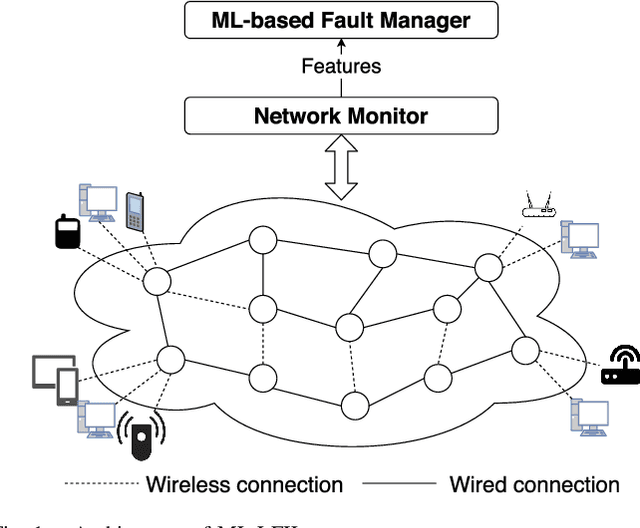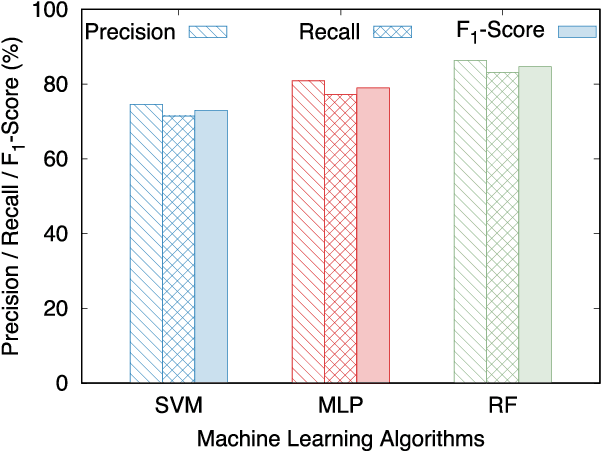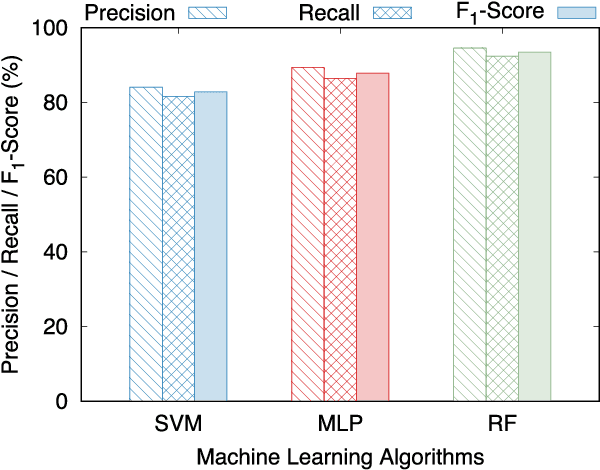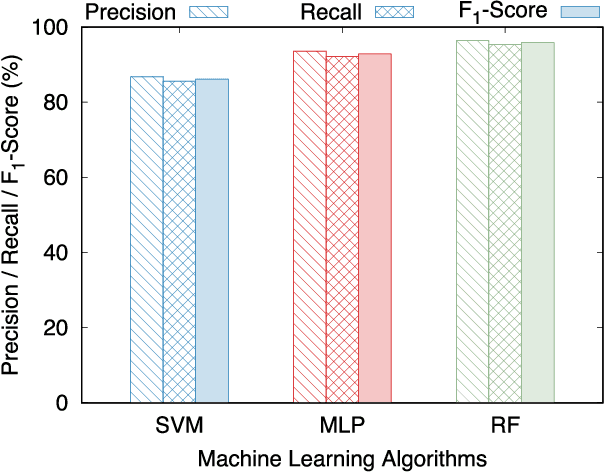Srinikethan Madapuzi Srinivasan
Machine Learning-based Link Fault Identification and Localization in Complex Networks
Dec 10, 2018



Abstract:With the proliferation of network devices and rapid development in information technology, networks such as Internet of Things are increasing in size and becoming more complex with heterogeneous wired and wireless links. In such networks, link faults may result in a link disconnection without immediate replacement or a link reconnection, e.g., a wireless node changes its access point. Identifying whether a link disconnection or a link reconnection has occurred and localizing the failed link become a challenging problem. An active probing approach requires a long time to probe the network by sending signaling messages on different paths, thus incurring significant communication delay and overhead. In this paper, we adopt a passive approach and develop a three-stage machine learning-based technique, namely ML-LFIL that identifies and localizes link faults by analyzing the measurements captured from the normal traffic flows, including aggregate flow rate, end-to-end delay and packet loss. ML-LFIL learns the traffic behavior in normal working conditions and different link fault scenarios. We train the learning model using support vector machine, multi-layer perceptron and random forest. We implement ML-LFIL and carry out extensive experiments using Mininet platform. Performance studies show that ML-LFIL achieves high accuracy while requiring much lower fault localization time compared to the active probing approach.
 Add to Chrome
Add to Chrome Add to Firefox
Add to Firefox Add to Edge
Add to Edge